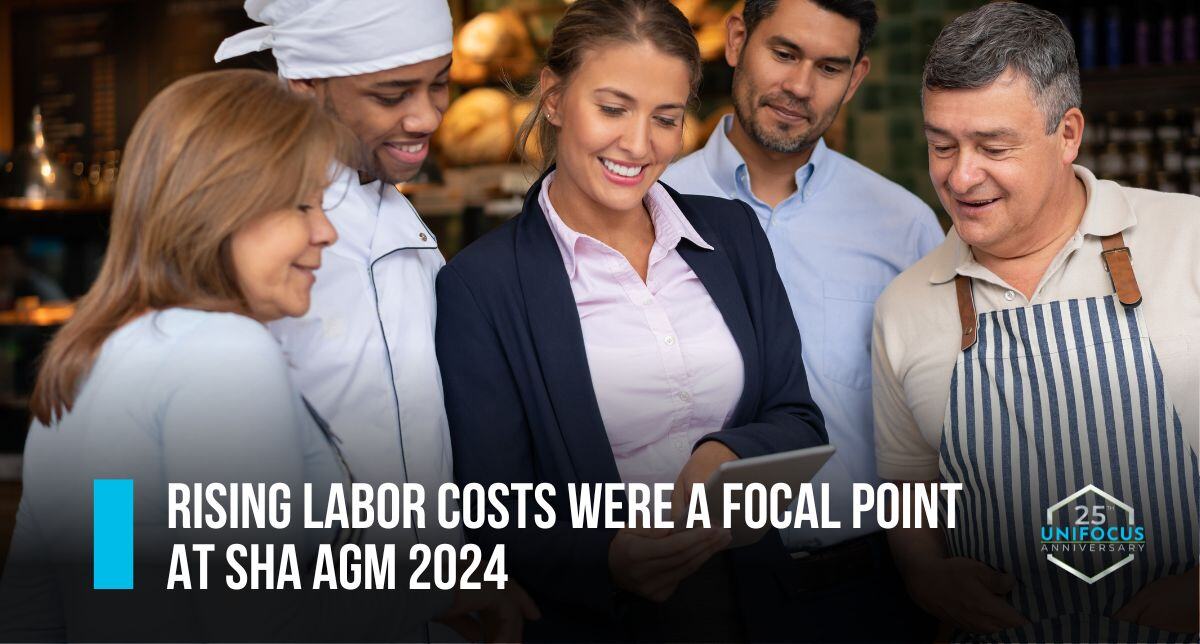We are excited to share with you the key insights from the recent Singapore Hospitality Association (SHA) Annual General Meeting 2024, a pivotal event that brought together industry leaders, experts, and stakeholders from across the hospitality sector. This year's meeting featured in-depth presentations and discussions led by renowned industry experts, who provided a comprehensive analysis of the current state and future outlook of the hospitality industry in Singapore. Their insights covered a wide range of topics, including labor costs, room rates, and market trends, offering valuable perspectives that underscore the critical need for advanced management solutions to navigate the complex and rapidly evolving hospitality landscape.
The analysis presented at the SHA AGM highlighted significant trends and challenges that hoteliers must address to remain competitive and profitable. These discussions emphasized the importance of adopting innovative technologies and strategic management practices to optimize operations and enhance guest experiences. For those who could not attend, here is a detailed summary of the essential points discussed, capturing the key takeaways and actionable insights that can help hoteliers in Singapore and beyond prepare for the future.
Market Dynamics and Room Rates
Market Recovery and Growth The past year has witnessed impressive recovery and growth in the hospitality industry. Key points included:
- Room Rates Surge: 2023 saw a remarkable 22% increase in Average Daily Rate (ADR) and a 29% rise in Revenue per Available Room (RevPAR), despite occupancy not fully rebounding to pre-pandemic levels.
- Segment Performance: The luxury segment showed significant improvements, with ADR and RevPAR leading the charge. This segment's success is vital as it sets the pace for the entire market.
- Market Maturation: Singapore's hospitality market is maturing with a more diverse range of hotel classes and aggressive rate management strategies.
- Sustained High Rates: Despite initial concerns about Q2 performance, hotels have successfully maintained high room rates. April and May data showed robust performance, comparable to the previous year.
- Occupancy Trends: While occupancy rates were slightly behind last year, the short booking window post-COVID led to last-minute surges, especially during weekends.
Market Performance Insights
- Stabilized Rates: Rates have stabilized at approximately 25% higher than historic levels, maintaining a strong position compared to previous years.
- Seasonality and Occupancy: Seasonality patterns returned, with Q2 and Q4 being softer periods. Despite occupancy being slightly below historic norms, it held pace with 2023.
- Last-Minute Bookings: Last-minute bookings, particularly on weekends, have become more common, indicating a shift in booking behaviors.
Labor Costs and Productivity
Rising Labor Costs Labor costs were a focal point in both presentations, emphasizing the need for effective management:
- Rising Labor Costs: Across all departments, labor costs increased by an average of 10% in 2023. Despite this rise, effective revenue management helped maintain a GOP of over 41%.
- Productivity Gains: The year saw significant productivity improvements, with value-add per staff member increasing. This trend aligns with government goals and showcases the industry's efficiency strides.
- Future Challenges: As revenue growth stabilizes, controlling labor costs will be crucial to maintaining profitability. This challenge underscores the need for robust workforce management solutions.
Strategic Recommendations for Hoteliers
- Advanced Revenue Management: Implement sophisticated revenue management strategies to sustain high room rates and maximize revenue per available room.
- Labor Cost Control: Invest in advanced labor management tools to forecast, schedule, and adjust staffing levels in real-time, optimizing labor costs without compromising service quality.
- Adapt to Booking Trends: Embrace flexible booking policies and leverage data analytics to anticipate and manage last-minute booking surges, particularly on weekends.
- Enhance Productivity: Focus on improving staff productivity through targeted training programs and efficient task management systems, aligning with broader industry trends towards increased efficiency.
By adopting these strategies, hoteliers can navigate the evolving market landscape, manage costs effectively, and enhance overall profitability. Embracing technology and data-driven decision-making will be key to staying competitive in the dynamic hospitality sector.

 Key Takeaways from the Singapore Hospitality Association AGM 2024" >
Key Takeaways from the Singapore Hospitality Association AGM 2024" >




